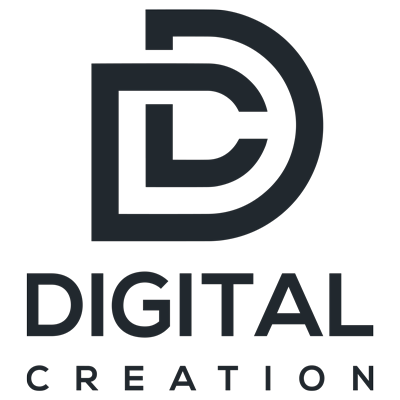Podcasts have become a mainstay of our daily lives. Especially during periods such 2020’s half year so far, people have begun listening to podcasts more than ever, generally to receive some new information, but oftentimes just to listen someone’s else voice.
Podcasts 101 – a short brief
Podcasts represent a medium of free interactive speech. These are not like talk shows, where you have a strict format and guidelines; more often than not, podcasts are simply an informal conversation, with either an acquaintance or a stranger, on a topic of interest to both you and your audience.
We might even listen to podcasts when we wake up. For example, Google has an assistant routine function, which will play any podcast of your choice, right after your alarm clock has stopped, just before waking up from bed or while you do you morning routine. I, for example, like to listen to some news podcast before waking up, which happens roughly 15 minutes after my alarm clock has rung.
Today’s podcasts are accessible and easy to set up, on any niche or subject. The setup can be quite cheap – you simply get ahold of a USB microphone, such as a Blue Yeti, connect it to a computer and use any available free software to edit the sound a little bit.
However, if you wish to make an investment into this endeavour, you can look for a much more advanced professional setup, like the RodeCaster and Rode Podcaster microphone. This will confer a more formalized brand to your podcast, however it will come at a steeper cost, and all the investment in the world will not suffice if you do not account for one main aspect – soundproofing. This is what makes or breaks a good podcast. When going down this path, you have to ensure that all of the echo from your room can be eliminated – you want people who will be listening to do so without the nuisance of echoes.
This is such an important matter that you even if you have the most interesting topic in the world, people will not appreciate it if it doesn’t sound crisp and without any echo.
A potential purveyor of podcasts
We worked with a client once that wanted to acquire a professional podcast setup. He wanted to invest $15,000 into the whole endeavour. In his eyes, podcasts are the most trending thing right now. They offer you an easy reach and engagement to an audience, way easier than sending mails, writing articles or using social media. His view was proven right even more so with the unfortunate COVID-19 situation we have experienced this year.
Video has become more popular than ever, because people were tired of listening to the same voices over and over again on the radio, and watch the same faces over and over again on TV, during the long lockdown period. The 2020 situation has changed the landscape so much. People’s perception and preferences when it comes to content and entertainment have shifted so wildly that nowadays, most people don’t use a TV for talk shows and sitcoms – they use it just for YouTube or Netflix.
Therefore, reaching them in the online environment, via the Internet, is quintessential. Even audio book podcasts are starting to grow much more these days, as people are finding it easier to listen to a story than read it themselves. Maybe people have lost interest in reading, or maybe the alternatives are simply way more accessible. Either way, our client double-downed on his decision, as he was sure that podcasts are going to be the next big thing for a while.
Now, it is obvious that you won’t need such expensive equipment to make a good podcast. You don’t need to spend that much money, but it is important that you pick quality equipment.
Another aspect to take into consideration is moderation/hosting. Our client did not see himself fit to be the host of his podcast, and after investing into expensive equipment, his next action was to look into hiring a technician and a host. The latter is of particular interest if you are someone shy or not interested in talking freestyle about topics that may come one out of another. Finding a host that can set the mood right with any guest you may bring will be a bigger boon for you, than trying to do it yourself, if your personality does not fit this engagement.
However, those technical and manpower aspects won’t matter if your topics generate as much interest as a snail-watching competition. Your format and presentation have to be easy to follow and entertaining. Becoming complacent during a show happens more often than you think, and you want to avoid that at all costs.
You have to maintain a good roster of ideas & interesting topics that stand out from the plethora of generic shows, topics that get you going and in which you become invested. If you have trouble finding something for you, that’s where we can pitch in, to find the best niche for your particular tastes, by analyzing the market trends in the podcast industry.
Final thoughts
From our experience, a professional podcast studio that can hold 4 people (1 host and 3 guests at the same time) will cost you around $15,000. In this price range, we only take into consideration the equipment.
Next, we move onto soundproofing. This can easily start from $2,500+ for a 40mp2 room, so our advice is if you are unsure that you can get your investment back, do not invest in expensive podcast equipment.
Grow your audience first. Then, start investing step by step. If you have a loyal and supportive audience, you can consider further investments in raising the quality of your show, as your audience is right there behind you and they deserve it.
All in all, there are 4 major aspects you have to keep in mind when starting a podcast:
- Crisp sound (requires soundproofing)
- Interesting content (required in order to stand out from others)
- Natural behavior (you have to sound like you are truly enjoying the experience)
- Quality equipment (required in order to run a nice show – we already have a list of equipment with which you can get started, if you need it)
Lastly, do not forget that your podcast will need promotion. This will require another layer of financial investment, but promoting your podcast is key if you want it to reach people. Nowadays, it is much easier, thanks to mediums like Spotify, iTunes and the likes. Come up with a catchy name, find content that you would like to talk about and others might want to listen (we can help you out with this), and then focus on getting your podcast out there, to as many people as possible.

